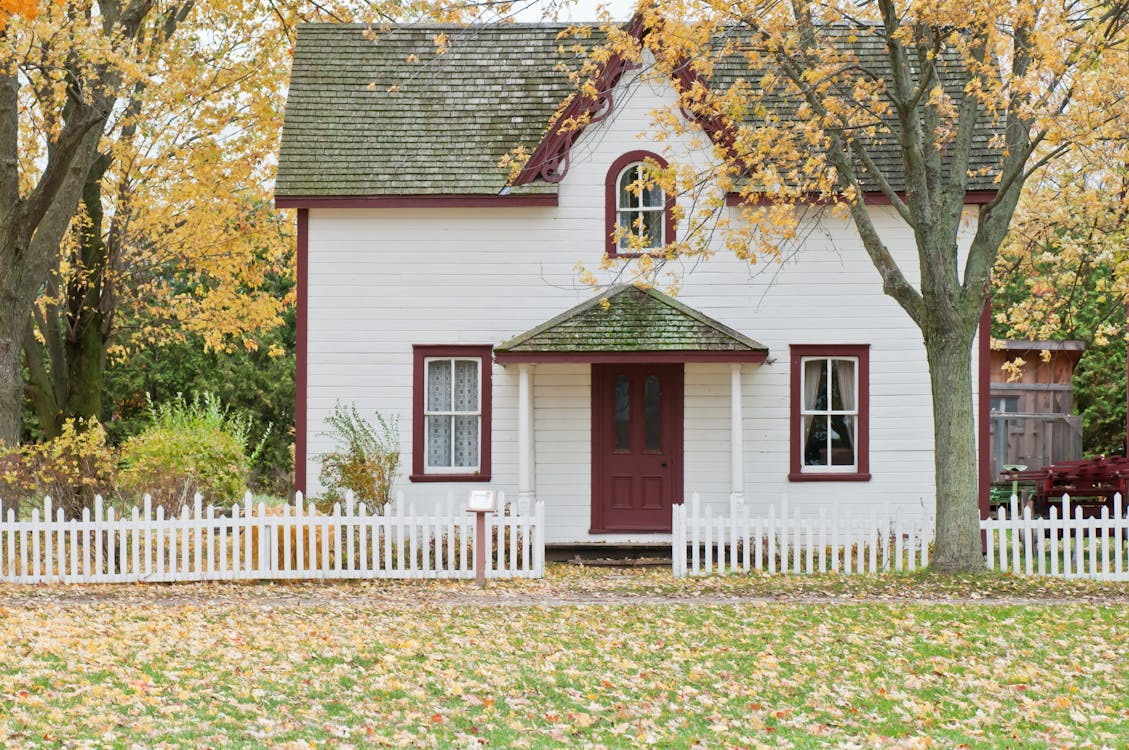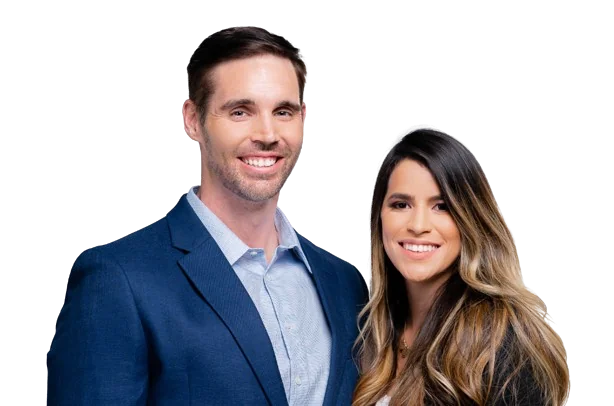Mortgage Refinancing
Investing in a home is a wise financial decision for many buyers. The freedom and privacy that come with a home are fantastic advantages, but purchasing a home also has economic benefits that can manifest in the future.
If you consistently cover your monthly mortgage payment and increase the value of your home, you can eventually refinance to improve your loan terms or access the home’s equity. Refinancing can impact your mortgage insurance rate, annual percentage rate, and some lenders provide same day financing.
Many homeowners enjoy lower refinance rates that help them save money on interest payments. A strong credit history can help you save money, and you may be able to get more favoriable insurance terms in your new agreement.
TrueWay Mortgage is a reliable lending partner who can explain your refinancing options. We will help you secure more competitive interest rates and tailored refinancing options. Our agents will ensure you understand everything from the mortgage insurance to the origination fee and everything in between.


What is Mortgage Refinancing?
Refinancing is a financial strategy homeowners can use to their advantage. It involves replacing their initial mortgage with a new one. The purpose of replacing the primary mortgage is to achieve better terms on the second mortgage or meet financial objectives.
For example, many people refinance to access lower interest rates now that their credit scores have improved, which would result in lower monthly payments. Others refinance their current mortgage into a new loan with a higher value, receiving the difference in cash to pay for specific expenses.
Whatever your reason for pursuing a refinance, the new loan offers an opportunity to improve your financial situation by accessing your home’s equity.
How Does Mortgage Refinancing Work?
While you must apply for a refinance, the process is much simpler than applying for a first mortgage on a home purchase. You will complete a loan application, have the property appraised to determine its value, and then proceed to closing.
It’s common for a lender to review finances before agreeing to refinance a home to ensure it’s the right move and you can cover certain costs, such as closing costs. They may need to see pay stubs, bank account statements, and other verification to explore options that work for you.
Many homeowners are responsible for closing costs when they refinance. Closing costs may include appraisal costs, underwriting fees, and other costs you typically pay during closing.
TrueWay Mortgage is committed to guiding homeowners through this process to make it seamless. We’ll review refinance rates, discount points, credit requirements, and the total cost of refinancing to ensure it’s right for you.

Types of Mortgage Refinancing
Pursuing a mortgage refinance makes sense in numerous situations. In most cases, the homeowner is refinancing to lower their monthly payments or receive a lump sum of cash. These two refinancing strategies are called rate-and-term refinancing and cash-out refinancing, respectively. Depending on your home loan type, you could also pursue a streamline refinance.
Rate-and-Term Refinancing
If you want to lower your interest rate or adjust the loan term, you would apply for a rate-and-term refinance. This primarily benefits homeowners with fixed-rate mortgages and a solid credit history.
If the market is favorable or you have improved your credit score, you can replace your initial mortgage with a new one with a reduced interest rate. This would lower your monthly payments, resulting in long-term savings.
You could also adjust the life of the loan, shortening or lengthening it to change your mortgage payments. This refinance type focuses on altering the monthly premiums to pursue financial goals. It’s also ideal if you’re struggling to make payments and can’t afford insurance.
Cash-Out Refinancing
Cash-out refinancing, often called a cash-out refi, is a way to access home equity and pay for essential expenses. Essentially, you take out a new loan greater than the principal balance owed on the first loan up to a certain amount. The difference between these loan amounts is paid in cash to the homeowner.
Many borrowers use this cash to finance home renovations or consolidate debt. You could also use this money to pay for an emergency expense. Some homeowners use the money to cover closing costs, pay insurance payments they’re behind on, and build a nest egg.
Streamline Refinancing
Streamline refinancing is only available to borrowers with certain home loans. If you have an FHA or VA loan, streamline refinancing is a simplified process that can lead to more favorable payments or new loan terms. This is a specific loan type with fewer requirements to make the process faster. For example, you might not need an appraisal.
Benefits of Mortgage Refinancing
The benefit of a refinance depends on the type of house loan you pursue. Your financial status will also affect how refinancing can affect your budget. Some of the most common benefits of a refinance are lower monthly payments, reduced interest rates, and access to cash for major expenses.
Lower Interest Rates
Interest on your current mortgage can cost a lot of money over the life of the loan, and these rates may change daily. If you have an opportunity to reduce the interest rate on the loan, you can access more manageable payments.
For example, if the market has improved since you bought your house and increased your credit score, a new home loan could significantly reduce the interest payments. This will save you a lot of money throughout the life of the loan.
Shorter or Longer Loan Terms
Many borrowers have changing financial situations. Sometimes, their goals for homeownership shift after owning the home for a few years. For example, you may want a shorter loan term if you decide to pay off the mortgage faster. If you have less income than planned, a longer term would make the payments easier to manage.
Refinancing allows the borrower to adjust the length of their loan term to suit their financial goals. This is ideal if you have new goals for your house or finances. Some people decide borrowing against the house isn’t best, and consider new loan terms instead.
Access to Home Equity
The longer you live in the home and make payments on the loan, the more equity you have. If the property's value has increased, you could build significant equity in a few years. A cash-out refi allows you to take out a new loan that is higher than the original loan's balance and accept the difference as cash.
This money could be used for whatever you need, including home improvement projects or debt consolidation. Some people use it to buy mortgage points, which are discounts on the interest rate. Many people who have made consistent mortgage payments will qualify for this.

Eligibility Requirements for Mortgage Refinancing
Understanding eligibility requirements is the key to succeeding with your refinance application. Lenders have varying standards regarding your credit score, income, and loan-to-value ratio. TrueWay Mortgage will help you understand these requirements and create a strategy.
Credit Score and Debt-to-Income Ratio
First, the lender will look at your credit score and debt-to-income ratio. The minimum credit score for a typical refinance is 620, though some lenders may require 700 or above for specific borrowers and properties.
A debt-to-income ratio reflects your monthly debts compared to your income as a percentage. Most lenders prefer a maximum DTI ratio of 43%, though exceptions could be made up to 50%.
Home Equity and Loan-to-Value Ratio
Refinancing also depends heavily on your home equity and its appraised value. Lenders will only let you refinance if you have enough equity in the home to justify it. If you want to refinance, you should have at least 20% equity in the property. The ideal loan-to-value ratio for a conventional refinance is 80%.
LTV is calculated by dividing the remaining balance on the current loan by the current market value of the property and multiplying that by 100. Some websites offer a calculator to determine this, but a calculator doesn’t know your personal situation. Agents at TrueWay Mortgage can help you determine your LTV ratio.
When to Consider Mortgage Refinancing
The timing of a refinance is just as important as your financial status. If you refinance too early, you may miss out on far better terms if you wait a few years. The best time to refinance is when interest rates drop in the market or if your equity increases significantly because of the property’s value. Additionally, a shift in your financial goals could also dictate a refinance.

Costs to Consider When Refinancing
Although refinancing can save you money in the long run or let you access cash, there are some costs to consider first. Closing costs, in particular, could be a barrier to refinancing.
Typically, homeowners will pay 2-6% of the loan amount in closing costs, including an origination fee, a title company fee, an appraisal fee, and other expenses. There could also be prepayment fees on the initial loan. TrueWay Mortgage will be upfront and honest about these costs.
Mortgage Refinancing for Different Loan Types
The loan application process and financial benefits will vary depending on your loan type. For example, refinancing a conventional mortgage looks different than an FHA or VA loan. Let’s look at some scenarios for several loan types.
Conventional Loan Refinancing
A conventional mortgage is the most flexible loan for refinancing. You could change a fixed-rate loan into an adjustable-rate mortgage, seek a lower interest rate, or shorter term. Cash-out refinancing is also an option to pay for a large expense using home equity. With numerous choices, a conventional refinance may be the easiest option to seek better terms for your second loan.
FHA and VA Loan Refinancing
If you applied for a government-backed loan, such as an FHA or VA mortgage, the refinancing options are similar but with more specific requirements. You can only apply for an FHA streamline if you bought the home with an FHA loan, which grants access to a lower interest rate or shorter term.
With a VA loan, you could refinance with an Interest Rate Reduction Refinance Loan (IRRRL). These options are only available if you initially bought your home with the corresponding loan program.

Why Choose TrueWay Mortgage for Mortgage Refinancing?
TrueWay Mortgage is the partnership you need to find a refinancing solution that meets your financial objectives. As a trusted provider of numerous refinance loan options, we offer competitive interest rates, personalized guidance, and a customer-focused approach. Our goal is to find a solution that works for you.

Contact Sam and Anisha Mauldin
TrueWay Mortgage
Start Your Mortgage Refinancing Journey Today
Our team is ready to guide you through the refinancing process. Use our quick quote tool to compare today’s rates for a refinance loan. Once you are prepared to proceed, or if you have additional questions, contact us at 404-962-0032 for a free consultation.
